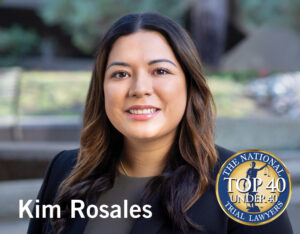Colleges falsify financial aid information to assist unqualifed students in obtaining federal funds.
Some for-profit colleges have been caught falsifying financial aid information in order to enroll students who do not qualify for government grants or loans. In some cases, college representatives have instructed applicants how to fraudulently complete their applications in order to receive student financial aid for which they did not truly qualify.
These actions violate federal law and divert financial aid monies from students who need such aid to pursue a higher education. School employees who know of such misconduct can help recover federal funds and put an end to these fraudulent practices by filing a lawsuit under the qui tam provisions of the False Claims Act.
Examples of such fraudulent falsification of financial aid information include the following:
In an undercover investigation of 15 for-profit colleges undertaken by the Government Accountability Office (GAO), college personnel at four institutions encouraged students to lie on financial aid forms. In its June 2011 report, the GAO revealed that:
- A financial aid officer employed by a for-profit college in Texas counseled an undercover agent posing as a financial aid applicant not to report $250,000 in personal savings. The school employee told the applicant that it was “none of the government’s business” how much money the applicant had.
- At a California school, an admissions representative told an undercover investigator that changing his FAFSA application to state that he had three dependents, rather than truthfully reporting that he was a single-person household, might help him qualify for a Pell Grant.
- In Florida, an admissions representative told an undercover agent that no one would “come after” her if she failed to pay back her loans.
Colleges have a financial incentive to falsify financial aid documents.
For-profit colleges depend on the influx of financial aid to maintain their own financial condition. This has created an environment where officials are tempted or pressured to falsify documents in financial aid applications, knowingly assisting students in getting federal aid to which they are not entitled.
How Waters Kraus Paul & Siegel can help whistleblowers
With a national presence and in-depth experience fighting fraud against the government, Waters Kraus Paul & Siegel, LLP, provides aggressive representation of whistleblowers in qui tam actions and related complaints. The firm currently represents whistleblowers seeking to recover funds on behalf of the federal and state governments in a variety of cases, which may involve defendants such as large pharmaceutical companies, government contractors, school district contractors, and hospice and nursing home care providers.
To learn more about qui tam representation at Waters Kraus Paul & Siegel, or to have one of our attorneys review your potential case, email us or call 800.226.9880.




